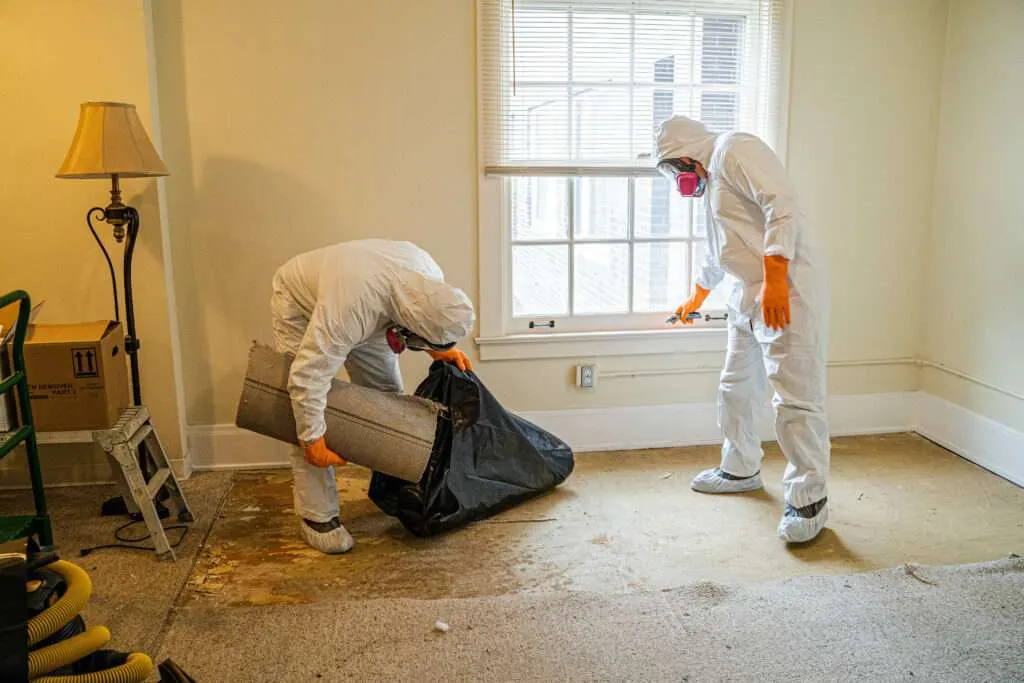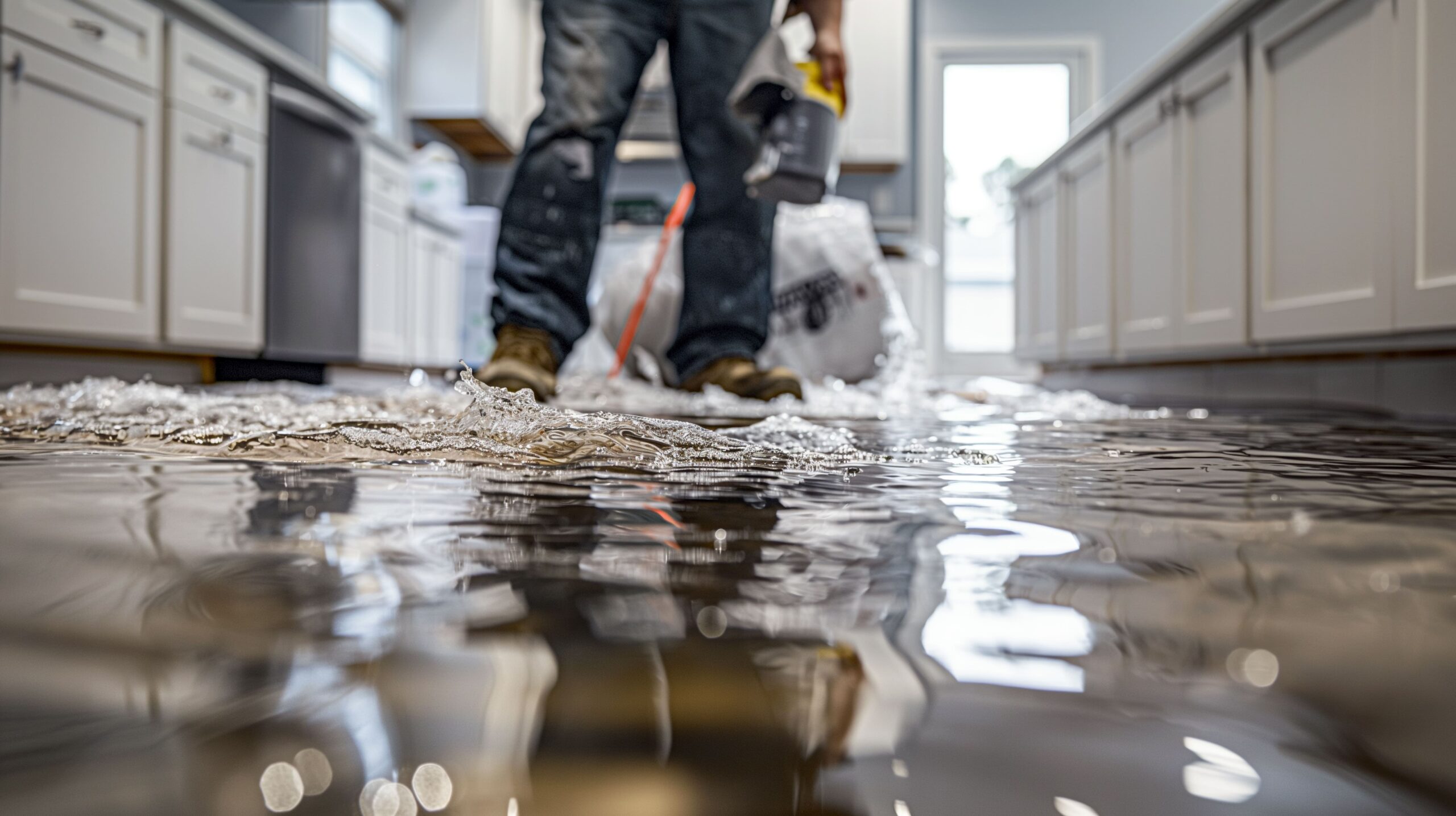Water Damage Restoration 101: Comprehending the Process and Expense
Water damage can strike unexpectedly, leaving house owners in a state of confusion. Recognizing the remediation procedure is necessary for reliable healing. From assessing the damage to choosing the right solution copyright, each step affects the general end result and cost. Aspects such as the kind of water damage and urgency likewise play a considerable role. What are the specific techniques used in restoration, and just how can one prepare for prospective expenses?
Sorts Of Water Damage

First Analysis and Examination

Water Removal Methods
Following the initial assessment, efficient water extraction techniques are used to reduce damage and prevent more issues. These strategies involve making use of specific devices such as completely submersible pumps and industrial-grade vacuum cleaners - Water Damage Restoration. The option of approach depends on the volume of water existing and the kind of materials impacted. For standing water, completely submersible pumps are usually made use of for rapid removal, while vacuums are ideal for drawing out water from carpetings and furniture. Additionally, advanced techniques like water removal mats may be utilized for hard-to-reach locations - Water Damage Restoration. The goal is to eliminate as much water as possible, decreasing the potential for mold growth and structural damage. Trigger and effective water removal is essential in the general water damage repair procedure
Drying Out and Dehumidification Process
When the water removal is full, the drying out and dehumidification process ends up being critical to recovering the damaged area. This stage generally uses industrial-grade dehumidifiers and air movers to efficiently lower moisture degrees. The dehumidifiers attract damp air, getting rid of excess humidity, while air movers circulate air to accelerate dissipation. Monitoring devices is commonly utilized to track humidity and temperature level levels, guaranteeing excellent drying out conditions. The duration of this procedure can differ relying on the extent of the water damage and environmental factors. It is necessary to thoroughly dry all affected materials, consisting of wall surfaces, floor covering, and home furnishings, to avoid mold growth and structural damage. Proper execution of this step is important for a successful remediation outcome.
Cleaning Up and Sanitizing Affected Locations
A thorough first evaluation and examination of impacted areas is vital to recognize contamination levels once the drying procedure is full. Water Damage Restoration. Reliable cleansing techniques and ideal products should then be used to get rid of debris and stains. Finally, sanitization and sanitation approaches are necessary to guarantee that damaging pathogens are removed, restoring the space to a risk-free condition
Preliminary Analysis and Examination
Prior to beginning any restoration initiatives, a comprehensive initial assessment and examination of the impacted locations are important for reliable cleansing and sanitizing. This process entails identifying the level of water damage, establishing the resource of the water invasion, and assessing the products impacted. Examiners typically try to find signs of mold development, structural stability concerns, and damaged belongings. The evaluation additionally includes checking dampness degrees making use of customized devices to assure no hidden water pockets stay, as these can bring about further problems. Documenting the searchings for is essential for planning the following action in the repair process. An in-depth preliminary assessment allows reconstruction professionals to develop a targeted technique for reliable cleansing and sanitizing, inevitably decreasing damage and wellness dangers.
Cleaning Techniques and Products
Efficient cleansing and disinfecting of water-damaged areas require a variety of products and techniques tailored to the specific materials influenced. For porous surfaces like drywall and more info carpets, extraction techniques are necessary to remove excess dampness, followed by deep cleaning with specialized cleaning agents. Non-porous products such as ceramic tile or metal can be cleaned up using commercial-grade cleaners that efficiently eliminate impurities. Steam cleansing is one more reliable technique, specifically for carpetings and furniture, as it uses heats to eliminate microorganisms and mold (Water Damage Restoration). Additionally, environmentally friendly products are increasingly preferred for their safety and efficiency - Water Damage Restoration. Ultimately, choosing the suitable cleaning approaches and items not just ensures immediate cleanliness yet additionally help in protecting against more damage and carcinogen associated with water breach
Sanitization and Disinfection Approaches
When attending to water damage, appropriate sanitization and sanitation approaches are vital to assure the safety and health and wellness of the affected environment. After first cleaning, surfaces have to be treated with appropriate disinfectants to remove pathogens, mold and mildew, and bacteria that prosper in moist conditions. Usual methods consist of using EPA-approved chemical anti-bacterials, which can be used via splashing or wiping strategies. Additionally, ultraviolet (UV) light systems can effectively disinfect locations by reducing the effects of microbes without harsh chemicals. The option of approach usually depends on the kind of products affected and the extent of contamination. Eventually, extensive sanitization not just recovers a secure living space but additionally aids prevent future health and wellness risks connected with remaining wetness and mold and mildew development.

Repair Services and Restoration Options
Examining the damage brought on by water exposure is important for establishing the appropriate repair work and repair alternatives. House owners might encounter various issues, including harmed drywall, deformed floor covering, and endangered architectural components. Depending on the extent of the damage, repair work may include changing areas of drywall, mounting brand-new floor covering, or enhancing architectural light beams. In instances of extreme damage, full substitute of afflicted materials could be essential. Furthermore, professional conservators usually advise utilizing moisture meters to analyze concealed wetness levels before choosing the most effective course of activity. It is necessary to act without delay to stop mold development and further damage. Picking the right alternatives not only brings back the residential property however also assures lasting safety and performance.
Aspects Influencing Restoration Expenses

The level of water damage directly influences the restoration sets you back house owners can anticipate to sustain. Aspects such as the resource of the water, the period of exposure, and the damaged products greatly influence rates. Tidy water damage from a busted pipeline is usually much less pricey to recover contrasted to damage created by sewer. In addition, the degree of contamination dictates the requirement for specialized cleansing and disposal solutions, additionally boosting costs. Geographical location likewise plays a duty, as regional labor rates and accessibility of reconstruction services can vary. The necessity of the reaction affects expenses; quicker interventions typically lead to reduce total expenses by stopping additional damage. Recognizing these variables is essential for property owners when estimating restoration prices.
The 3 main kinds of water damage are classified based on contamination degrees: tidy water, grey water, and black water. A complete preliminary evaluation and inspection are vital actions in the water damage repair process. For standing water, submersible pumps are commonly made use of for rapid removal, while vacuums are ideal for removing water from rugs and upholstery. The level of water damage directly affects the restoration sets you back property owners can anticipate to incur. Tidy water damage from a broken pipe is generally much less expensive to restore contrasted to damage caused by sewer.